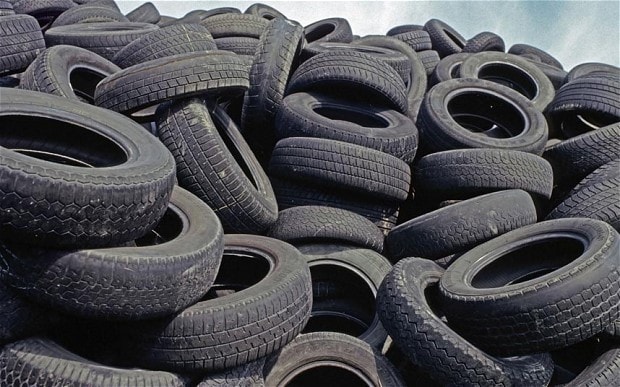
A Lincolnshire farmer is facing a bill of £250,000 after he was conned into housing tonnes of waste on his land.
Four sites across Lincolnshire have been targeted in recent weeks by criminals posing as officials who need to use the landowner's site to store waste.
Victims have been approached by the criminals, who have been described as being smartly dressed in some instances, asking them to store lorry loads of rubber as part of ongoing roadworks.
Bales and wood chippings are also being dumped and are said to be a self-combustion risk, with the latter being unusable as bedding despite what con men are telling their victims.
An alert issued by Lincolnshire Police reads: "Can all our members please be aware of the current scams targeting farmers, landowners and users of animal bedding.
"There is a huge cost to the victim in these scams and we are urging our members to remain vigilant due to the high costs involved."
'Waste criminals'
In March, a landowner had to pay out £20,000 to clear four lorry-loads of rubbish dumped in his private woodland.
Criminals used tools to break into Million Woods on the Enville Estate in Staffordshire and dump up to 200t of waste.
A dog walker spotted the fly-tippers dumping tonnes of rubbish from a lorry on the 2,630ha estate, near Stourbridge.
These incidents had led the Environment Agency to issue out a warning. It urges all landowners and farmers to be wary and not become the next victim of illegal waste disposal and dumping.
Peter Stark, Senior Enforcement Officer, said: “Waste criminals can be very convincing and persuasive, sometimes offering £1,000s in cash up front.
“Don’t be tempted by quick money because you could end up with not only a massive disposal bill but also harm to the environment, flies, polluting liquids running out of bales of waste and increased risk of fire.”
Advice from the Environment Agency
• Use reputable agents and brokers
• Carry out suitable checks and due diligence, i.e. get the individuals details, vehicle registration, ask where the waste is coming from (address, permit number, waste carriers registration)
• Inform them you’ll be contacting the Environment Agency or call us whilst they are there
• Don’t agree to accept any waste until you have carried out some checks and had a cooling off period to fully consider the offer
